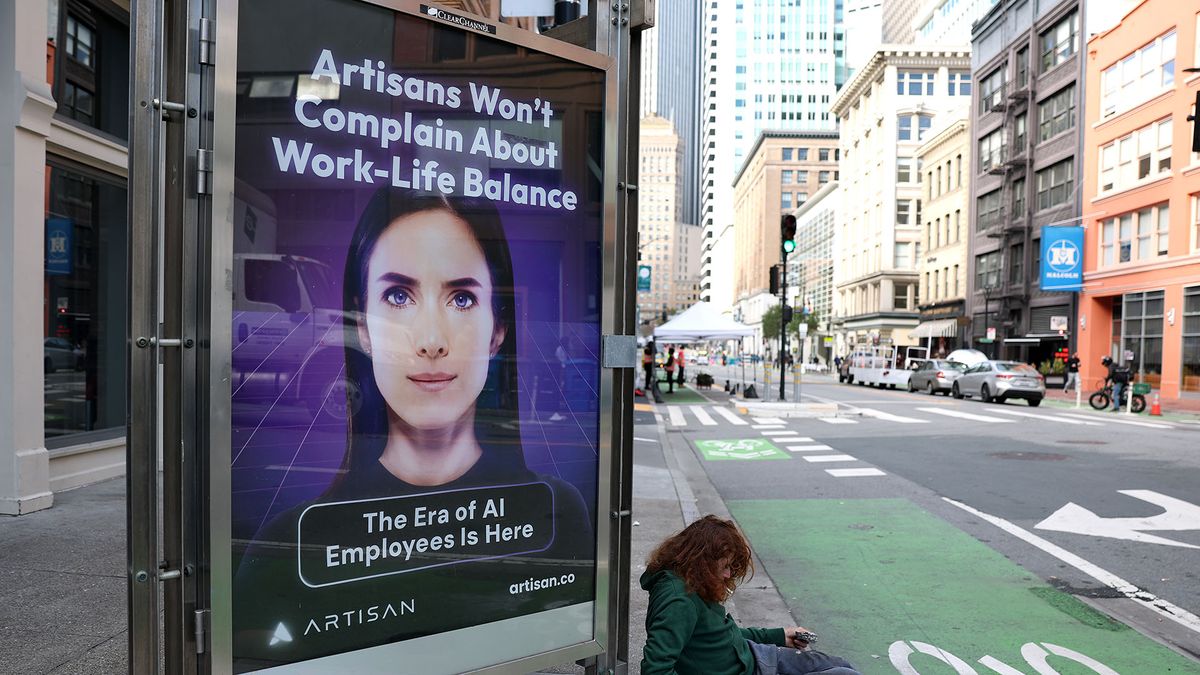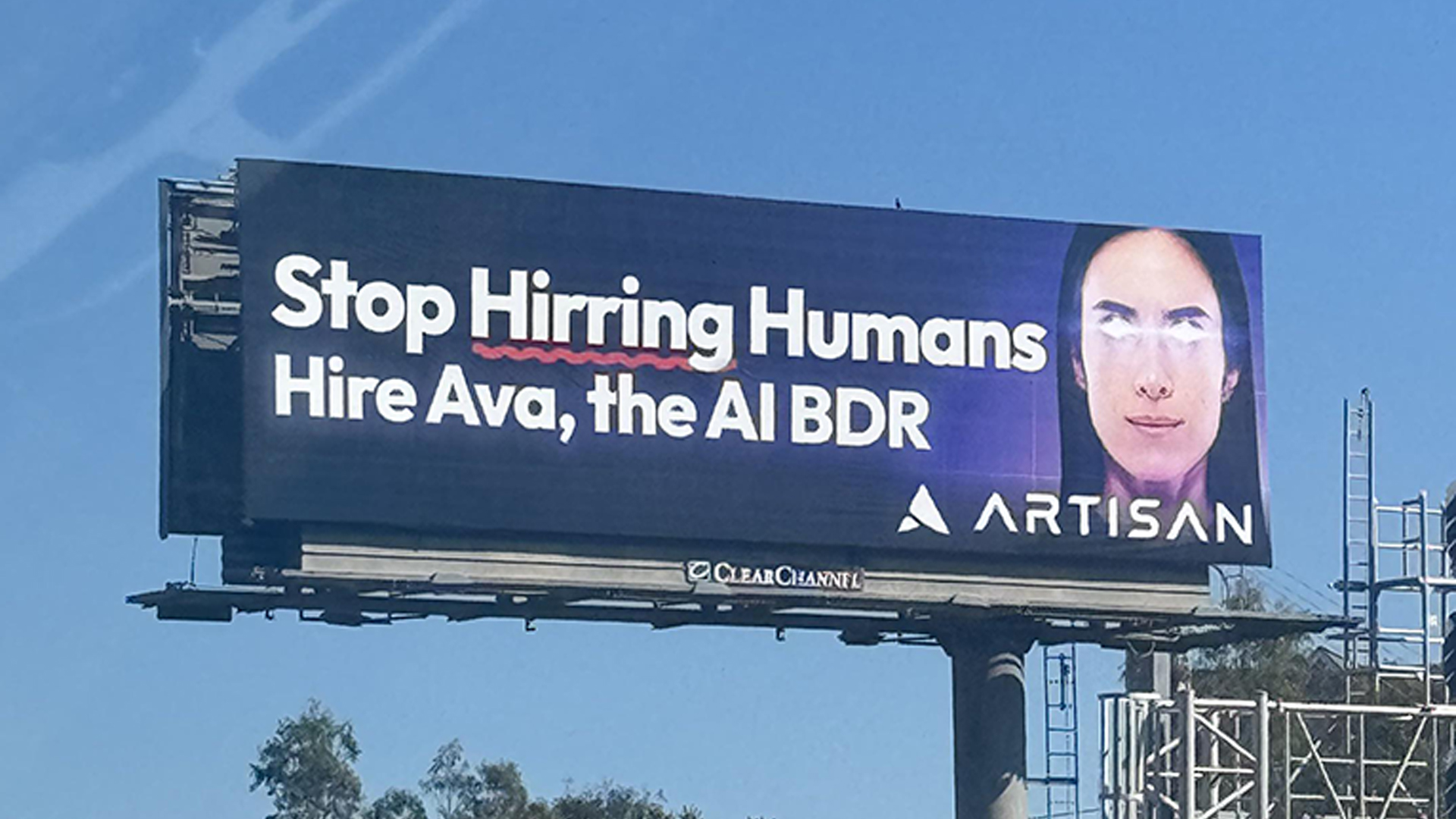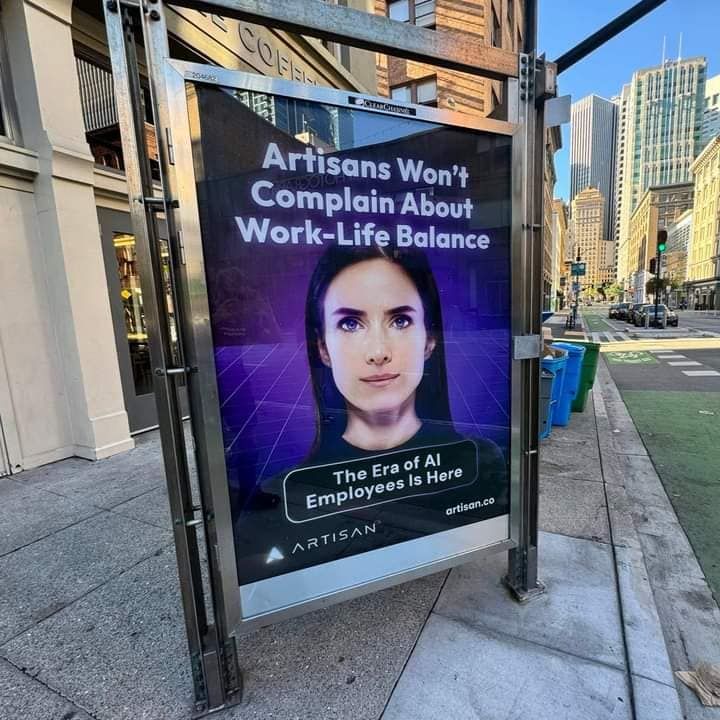
Last month, I was suitably disturbed by a series of dystopian billboards cropping up around San Fransisco that promoted hiring AI over humans. The campaign was so egregiously provocative that it bordered on parody – a near-perfect reflection of the AI existentialism among creatives, seemingly proving that we're one step closer to an all-out AI takeover.
Rationally, I can see that AI is here to stay – with countless AI productivity tools at our fingertips the technology will inevitably bleed into many of our everyday practices. Despite this, these striking billboards have sparked outrage among many onlookers (understandably so), but I suspect that's their exact purpose. There's no such thing as bad publicity, right? At least the company's CEO seems to think so.

The company behind the controversial billboards is Artisan, an AI platform specialising in providing clients with AI employees. With goading copy like "Artisans won't come into work hungover" and "Artisans won't complain about work-life balance", it's clear that the billboards were designed with a purpose to challenge, provoke and offend. There's a desperate palpable irony to the campaign, even down to the company name "Artisan" synonymous with skilled human crafters who create by hand – a far cry from the company's AI drones.
It's unsurprising that as more billboards appeared, heated backlash soon followed. On Bluesky user @spaceprez.bsky.social shared one of the controversial ads, sparking outrage from followers. "This could be straight out of a Black Mirror episode," one user commented, while another added, "This makes me want to scream and throw bricks at it." Scathing responses continued on X, where @TMisGlitching called the ads an "anti-human publicity campaign".
Hire Artisans pic.twitter.com/9f2LMYtc0mNovember 9, 2024
The mastermind behind the controversial campaign is 23-year-old founder and CEO Jaspar Carmichael-Jack who appears suitably unphased by the backlash. Speaking to SFGate, Jasper says "We wanted something that would draw eyes – you don’t draw eyes with boring messaging." Regarding the ads, the CEO acknowledged "They are somewhat dystopian, but so is AI," suggesting that the provocative copy is merely a stark reflection of reality.
Regardless, the ads served their purpose. Outrage equates to engagement – something that Jack is all too familiar with. In a LinkedIn post regarding Artisan's viral Reddit rage bait post, Jack acknowledges his "shameless marketing" tactics, writing "The truth is that nobody cares about what you’re doing unless you give them a reason to care. [...] Make noise, and people will listen."

While I'd typically prioritise crafting a meaningful statement rather than 'making noise' when it comes to marketing, Jack's sensationalist approach has caused growth in the company. If you've found yourself frustrated by Artisan's provocative campaign it's almost inevitable – they're manufactured as rage bait and the company thrives from the backlash.
Despite this, artists are increasingly standing up for their rights against AI threats while professionals recently flocked to sign an open letter protesting 'unethical' AI practices, proving there are ongoing practical efforts to regulate AI usage in the creative industries. There's little we can do to stop this kind of desperate hate-fuel marketing, but as a creative community, we can choose to focus on what's important and give space to the causes that truly matter.







